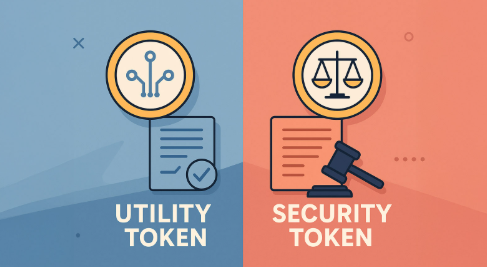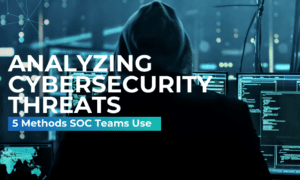A Legal Opinion document stands as the main factor which determines if a crypto project succeeds or fails in the market. Security and utility token launches now require qualified legal reviews because they have become essential for both cases.
Legal Opinions for crypto exhibit different characteristics because they serve distinct purposes. Utility and security tokens fall under completely different regulatory frameworks. The classification determines both your project’s regulatory framework and its market perception and survival capabilities within the current market conditions.
Let’s unpack this — simply and clearly.
What Is a Legal Opinion?
It is a formal document written by licensed attorneys determines how a token matches current regulatory systems. Is the token a consumable access tool? Or is it an investment contract, demanding full compliance with securities laws?
The token classification determines its potential for funding growth as well as its exchange listing possibilities and investor acquisition capabilities.
The lack of proper regulatory analysis exposes projects to exchange rejections together with enforcement actions and damage to investor trust.
Legal Opinions for Utility Tokens
During utility token issuance the Legal Opinion aims to demonstrate that the asset operates outside of securities regulations.
Lawyers focus on proving:
- The token functions as an operational component in either an operational or under-development system.
- Buyers intend to use it for access, not speculate for profit.
- Success doesn’t depend solely on managerial or entrepreneurial efforts.
The token exists as a product instead of functioning as an investment vehicle.
These opinions show actual business usage alongside operational characteristics that ensure the project maintains a distance from investment characteristics.
Exchanges require a solid Legal Opinion establishing utility status as a condition to list on Tier-1 and Tier-2 exchanges. Compliance teams receive assurance from this opinion which removes the main obstacle to reach users.
However, the risk remains. The original classification becomes invalid when project behavior shows potential for financial profit which triggers enforcement against the project regardless of its initial evaluation.
Legal Opinions for Security Tokens
When a security token is issued, the legal strategy flips.
The legal document confirms the token’s status as a securities law subject while detailing the complete compliance with required regulations.
It includes points about:
- Which exemptions (Regulation D, Regulation S, etc.) apply.
- How disclosure requirements are met.
- Restrictions on transferability and secondary sales.
- Verification that investors meet eligibility standards.
The Legal Opinion serves to correctly handle regulatory compliance rather than evade it.
Security token opinions are usually longer and cite detailed statutory references.
These opinions serve as fundamental requirements for all projects that want to access regulated exchanges and work with broker-dealers and institutional investors.
The attitude shifts from prove we don’t need regulation to prove we meet the rules.
Why These Differences Matter
The external appearance of Legal Opinions presents itself through formal language alongside technical content and cautionary tone.
But their purposes are completely different.
- For a utility token, the opinion argues that the project is outside securities law.
- For a security token, it plots a path within that law.
Confusing these two approaches is risky. Misclassification creates the risk of SEC enforcement actions and results in penalties and forced rescissions and damaging reputations.
A strong Legal Opinion exceeds code evaluation. The document evaluates both the token’s marketing approach alongside promised benefits and customer purchase patterns and anticipated outcomes.
The legal opinion functions as an actual defensive tool that extends beyond theoretical concepts.
Legal Opinions Need to Evolve
It is important to note that Legal Opinion status does not mean it remains unchanged.
A project’s legal standing transforms as its operations and business direction changes:
- Platforms introduce rewards that could make tokens look like investments.
- New features alter how users perceive token value.
- Marketing campaigns emphasize returns instead of use cases.
Smart teams view regulatory reviews as an ongoing process. Project seriousness regarding future compliance becomes evident through the process of updating Legal Opinions in response to changing circumstances.
The current market situation presents risks similar to technological stagnation.
Listing Requirements and Fundraising Barriers
Top exchanges — especially Tier-1 and Tier-2 — now require a credible Legal Opinion before listing tokens.
Without one:
- Applications often stall or fail;
- Compliance teams block integration;
- Institutional funds decline participation.
Investors who are cautious seek professional legal evaluations before making investment decisions.
Any token project seeking growth needs to obtain a clear and well-founded Legal Opinion because it has become an essential requirement instead of an optional feature.
A clear Legal Opinion functions as a vital component which grants access to markets while establishing legitimacy and maintaining operational safety.
Real Risks of Ignoring Legal Strategy
Crypto’s history offers many painful lessons:
- ICOs hit with massive fines for offering unregistered securities.
- Tokens removed from exchanges under pressure from regulators.
- Founders entangled in lawsuits and personal liability claims.
All these catastrophic events originated from inadequate legal consultation at the beginning.
A single well-timed Legal Opinion would have transformed the situation.
Final Thoughts: Law and Innovation Go Hand-in-Hand
Legal work remains a common source of fear among builders who believe it will hinder their speed. In reality, the opposite is true.
When projects establish clear regulatory foundations they gain the freedom to expand their operations without risks. It builds trust with users, investors, and partners. It doesn’t kill innovation — it protects it.
The cryptocurrency market has started its transition toward becoming a traditional financial system. Those who establish advanced regulatory systems will guide the development of the next successful generation of businesses.
Selecting the appropriate law firm for your project requires great importance. Choose teams that have actual experience with blockchain regulation instead of traditional finance. Inquire about their previous cases particularly those involving new technologies. The firms which deliver practical and clear advice instead of vague theoretical warnings will assist you in navigating growing regulatory challenges with confidence.
Strong Legal Opinions function as protective armor in this industry instead of being simple paperwork.
Having the correct protection in a fast-paced world becomes absolutely essential.



































